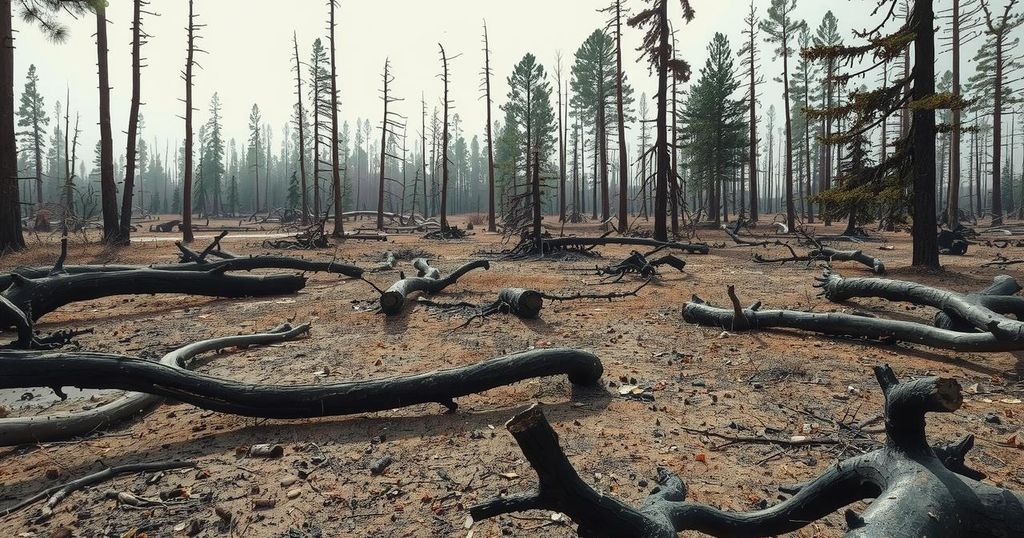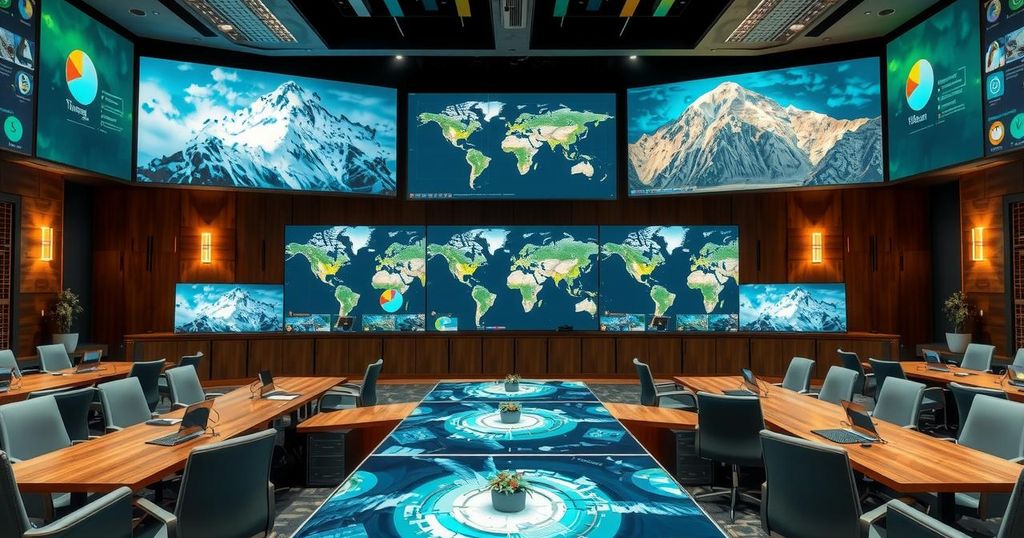Climate change in Zimbabwe has transformed from a theoretical concept to a daily reality, affecting agriculture and water supply. Rural educators like Fungai Makureke are adapting to teach climate education supported by UNICEF and KOICA. Young learners such as Mollene Masiya and Tapfuma Bhasikoro express their resilience and eagerness to understand and address climate issues in their communities.
In Zimbabwe, the repercussions of climate change have transitioned from theoretical to tangible experiences for many. Rural communities face challenges such as failed crops, water scarcity, and severe storms, which illustrate the ongoing impact of a warming climate. Young students and educators in Masvingo are beginning to confront these issues and take part in seeking solutions.
Fungai Makureke, a teacher at Sikato Primary School for over a decade, reflects on the change in climate patterns. “Now, we don’t know what to expect,” she states, noting that rains have become unpredictable. The recent 2024 El Niño-induced drought was particularly devastating, with crop failures and dwindling water supplies affecting families.
With support from the Korea International Cooperation Agency (KOICA), UNICEF, along with the Ministry of Primary and Secondary Education (MoPSE) and the Ministry of Environment, Climate and Wildlife, is introducing climate education. Educators like Priscilla are being equipped with Climate Education Teacher Training Modules to foster resilience and understanding among students.
Eleven-year-old Mollene Masiya from Chitembere Village expresses the high stakes of climate change, saying, “When the rains come, there is food.” However, she highlights the struggle to find water and the impact it has on her education. Mollene is eager to learn about climate change now that she has heard of it for the first time.
In Magwa Village, 14-year-old Tapfuma Bhasikoro describes the destructive nature of extreme weather, recounting how storms have damaged the infrastructure of his school. He emphasizes the importance of understanding climate change dynamics: “If we learn more about climate change, maybe we can change how we live.”
Through education and awareness, students in Zimbabwe are preparing not only to handle the challenges of climate change but also to contribute significantly to innovative solutions.
Climate change significantly affects Zimbabwe, particularly through unpredictable weather patterns that culminate in agricultural and water challenges. Local educators and students are now equipped to confront these issues through climate education, fostering a new generation prepared to advocate for environmental solutions. The resilience shown by young learners signifies hope for meaningful change in their communities.
Original Source: www.unicef.org




